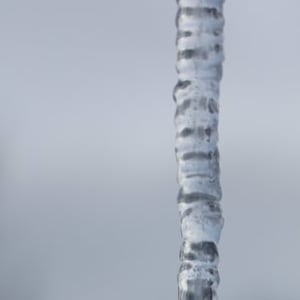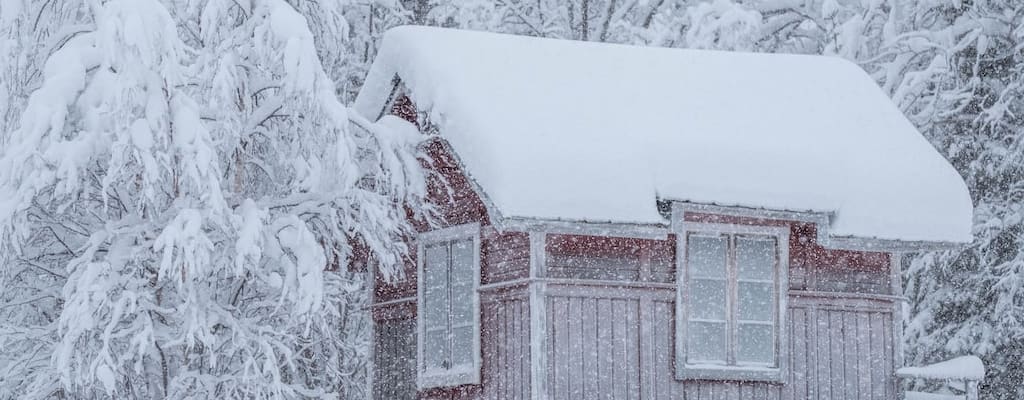dead of winter: Idiom Meaning and Origin
What does ‘dead of winter’ mean?
The idiom dead of winter refers to the coldest and darkest part of the winter season. It suggests a time of extreme cold and harsh conditions.

Idiom Explorer
The idiom "leave someone out in the cold" means to exclude or neglect someone, leaving them feeling alone, ignored, or abandoned.
The idiom "kiss of death" refers to an action or event that leads to certain failure or ruin. It implies that something or someone has a detrimental or fatal effect on a situation or outcome.
The idiom "in cold blood" means to do something in a ruthless and calculated manner, without any remorse or emotion. It is often used to describe a cruel or violent act that is done deliberately and without any compassion.
The idiom "grow cold" means to lose interest, enthusiasm, or affection for something or someone over time.
The idiom "freezing cold" means extremely cold weather or temperature. It is used to describe a situation where the temperature is very low and can cause discomfort or difficulty. The term "freezing" signifies the extreme coldness, while "cold" emphasizes the low temperature.
The idiom "end of the world" is used to describe a situation or event that feels extremely dire, catastrophic, or devastating.
The idiom "die out" means to cease to exist or become extinct. It is often used to describe the decline or disappearance of a species, a language, or a cultural tradition.
The idiom "die out" is a commonly used phrase in the English language. It refers to the gradual disappearance or extinction of something or someone. This idiom can apply to various aspects of life, such as traditions, languages, species, or even ideas and beliefs.
The idiom "die down" means to gradually become less intense, loud, or active.
Deciphering the Depths.
*Dead of winter* is an idiom used in the United States to describe the coldest and most harsh part of the winter season. It represents the middle to late part of winter when the weather is at its most severe. This idiom emphasizes the extreme conditions during this time, highlighting the coldness, darkness, and desolation associated with the winter months.
The word "dead" intensifies the severity and harshness of winter in this idiom. It conveys a sense of lifelessness and inactivity, suggesting that everything is frozen or dormant during this time. The idiom originated from the idea that winter is a period of death and dormancy in nature, where plants stop growing, animals hibernate, and the world appears desolate and lifeless.
The usage of the term *dead of winter* can be traced back to the early 19th century in various literary works and writings. It has become a common expression in American English, used in both casual conversations and formal writings, to describe the most frigid and bleak part of the winter season. The idiom is often utilized to convey extreme coldness and to emphasize the challenges faced during this time.
It is worth noting that the idiom *dead of winter* is specific to the United States and may not be as widely used or understood in other English-speaking countries. The meaning and connotations of the idiom may also vary slightly depending on regional differences and personal interpretations. Nevertheless, the core concept remains consistent, representing the coldest and most unforgiving period of winter.
An idiomatic expression closely related to *dead of winter* is *dead of night*. This idiom refers to the darkest and quietest part of the night, usually between midnight and dawn. Just like the *dead of winter*, the *dead of night* evokes a sense of stillness and lifelessness. It represents a time when the world is asleep and everything is calm and silent.
Another related idiom is *catch one's death*. This phrase is used to indicate that someone will become very cold, often to the point of falling ill or suffering harm. It suggests that exposing oneself to extreme cold, such as venturing out into the *dead of winter* without proper protection, can have severe consequences on one's health.
When we use the phrase *freezing cold*, we are emphasizing the extreme and unpleasant coldness. It conveys a sense of icy chill and severe discomfort, similar to the conditions experienced during the *dead of winter*. This idiom is often used to describe the weather or the feeling of being exposed to intense cold.
The idiom *death warmed up* is used to describe someone who looks extremely ill or pale, as if they have just come back from the brink of death. It signifies a state of extreme fatigue, weakness, or illness that is comparable to the lifeless and desolate characteristics of the *dead of winter*. This idiom serves as a figurative expression to convey a state of extreme physical exhaustion or deterioration.
Lastly, we have the idiom *cold day in Hell*. This phrase is used to express extreme improbability or unlikelihood. It suggests that a certain event or situation is so improbable that it would only occur under the most extreme and unlikely circumstances. This expression can be metaphorically related to the *dead of winter*, as both convey a sense of extreme conditions that are rarely experienced.
Example usage
Examples of how the idiom dead of winter can be used in a sentence:
- In the dead of winter, the temperature dropped well below freezing.
- We decided to take a vacation in the dead of winter to escape the cold weather.
- During the dead of winter, the trees were bare and covered in snow.
More "Season" idioms

